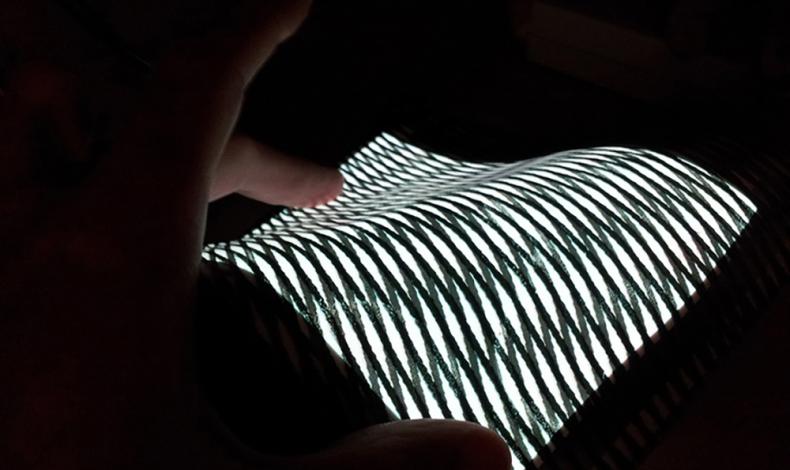Orkan Telhan: Helping Students Define ‘Design After the Digital’

Orkan Telhan’s title at the School of Design is unique, as are his research and teachings.
Orkan Telhan’s title at the School of Design is unique, as are his research and teachings.
Blending biology with design, the associate professor of fine arts, emerging design practices, is not only helping to shape a new field, but also encouraging students, he says, to “understand the power of design so they can see how they can influence society.”
Telhan’s seminar “Design 21: Design After the Digital,” now in its second semester, brings together undergraduate and graduate students once a week for three hours. Classes are based on lectures, presentations, and group discussion. Students, Telhan notes in his syllabus, “should expect to be involved.”
The idea of the course, he says, is to help students realize the impact of new technologies from the past decade—for example, digital fabrication, Internet of Things, blockchain, synthetic biology, and AR/VR—and what will come of them and others in the future. (In the spring, he’ll lead a follow-up studio, teaching students to make related products and applications.)
“The class is very forward-looking, it’s not a history class,” Telhan says. “We assess what has happened very recently and what is coming.”
It’s not that he teaches how or why things are designed, he continues, but what the implications are of these designs—economically, politically, and socially.
Today, people design with biotechnologies, fall in love in virtual reality AI bots, rent cognitive labor through cryptocurrencies, Telhan says. “Our creative capabilities, on the other hand, are bounded by a polluted, over-crowded, and resource-constrained planet that is suffering major income and educational inequality.”
Design After the Digital, thus, questions the role of design for this century.
“When students leave, I want them to have an ethical, social responsibility to change the world,” Telhan says.

